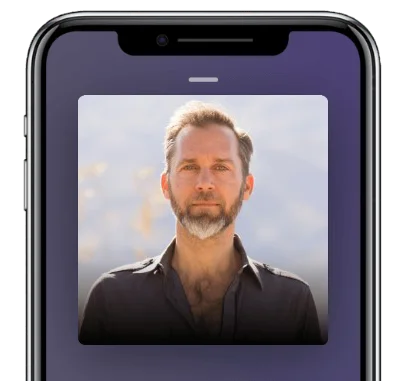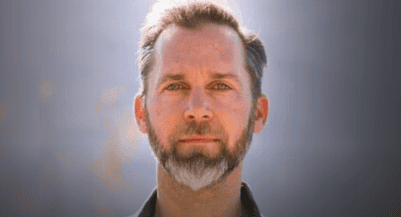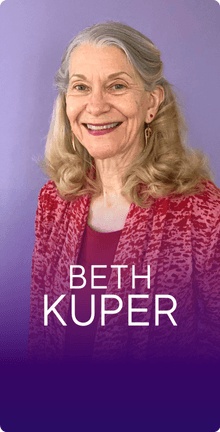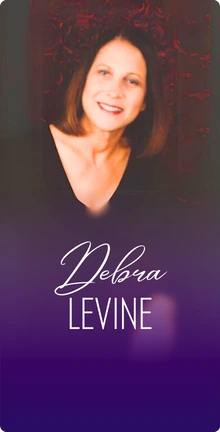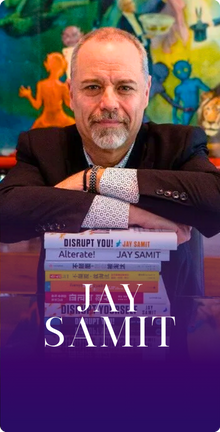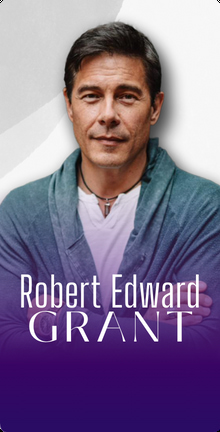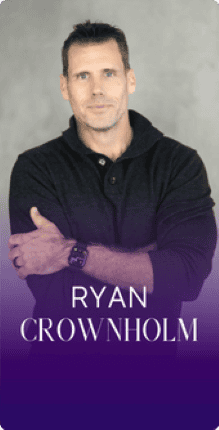In This Episode
- [02:28]Craig Filek, the creator of Purpose Mapping, shares his story of how he started guiding people on their life’s purpose.
- [11:05]What is purpose mapping, and how does it work?
- [15:24]Stephan shares his purpose statement.
- [19:33]Craig discusses his shadows and how he discovered what it was.
- [23:29]Craig explains the importance of using a mastermind to help you find your purpose map.
- [29:18]Craig emphasizes his purpose and how we can reveal light at the moment.
- [32:12]How can we connect with people beyond our comfort zone?
- [39:15]Craig differentiates downfall and shadow and why it is significant.
- [43:43]Craig shares the pivotal books he read.
- [47:53]Craig enumerates his favorite personality profiles besides Purpose Mapping.
Craig, it’s so great to have you on the show.
Thanks for having me.
We know each other from a mastermind or a brotherhood called METal. I know you’re adding value to the METal brothers’ lives and helping them see their purpose.
I’m curious to hear the origin story that got you so enamored by people’s life purpose.
It all started when I was adopted at birth. After that, there was just a long, winding path of figuring out who I am, why I am here, and what I do about that.
I had a daughter unexpectedly in my early to mid-20s, and the cycle with adoptees tends to repeat as we try to work out the puzzle in our psyche.
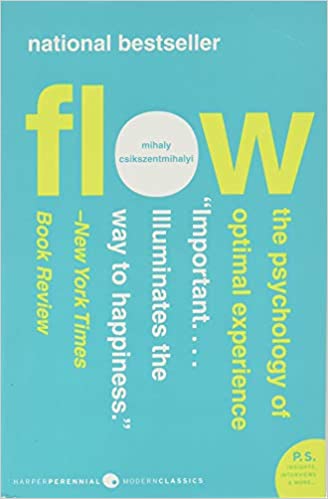
I spent much time in the self-help psychology and even the metaphysical section of Barnes & Noble on my nights off. I’ve probably read over 1000 books and skimmed hundreds more.
I eventually started stacking up probably about twenty to twenty-four inches of notebooks over ten to twelve years. At the same time, I was going through Tony Robbins and Stephen Covey.
This was the time of Napster, so I downloaded massive amounts of information to figure out entrepreneurship and what type of business would be right for me. They were all talking about you need a strong why and you need to know your purpose and mission. I kept getting that. All those successful people are talking about this.
Then, I’m reading personality profile stuff to figure out who I am because I didn’t really get the mirroring many of us would hope to be raised. Finally, something clicked, and I eventually built the business I set out to create in my 20s.
It took about ten or eleven years before I realized I was miserable. I ejected and sat up in a cabin just north of Vermont. It was technically in Quebec, south of Montreal. I sat there with that 20-inch stack of notebooks. I just read everything, and I burned most of it.
I ripped out a couple of pages here and there and realized I’d got a framework to structure and create the life of my dreams. But when I was in my 20s, I was writing all those Tony Robbins lists of all the things I wanted to accomplish in my life, prioritizing them. I was too immature to know what to want.
Our experiences help us to realize our purpose. This is our “genius zone.” Share on XWhen I got out everything I had created and had the framework left, I looked at that and said, “I could use this to build something worthwhile.” I had learned so much about myself over those ten to eleven years that I finally knew what to focus on. That became purpose mapping as a business and a framework for my life.
Do you ever regret burning all those notebooks?
No, it’s not the first time I’ve done that. I read about Jim Morrisson. I was a big The Doors fan in high school. That’s about as far as that went from me, but I read his biography, and he had done that. I returned from college and burned the stack of notebooks I had accumulated up to that point. I’ve done that at least twice or maybe three times in my life and never looked back.
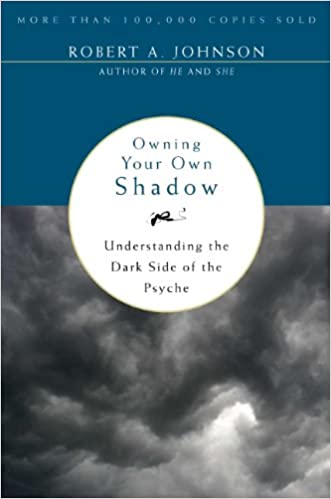
What does that get you?
Were you burning the notebooks? Mindshare and bandwidth. It’s just like defragging a hard drive for me.
No, I don’t think I’d ever want to.
I still have a stack of notebooks that I specifically used. I had a mentor for four years, and we spoke every week. He never charged me. He was just absolutely brilliant.
There’s an intellectual understanding of our purpose, but there’s also just feeling at ease in our bodies. He was the one that helped me with that, so I have all those notebooks. I didn’t throw or burn those.
All the men’s work and everything, I kept all that. It was all the ideas of trying to figure stuff out. At a certain point, I consolidate and move into the next phase of life.
What else do you do to defrag your hard drive?
Do you know who Bob Weir is?
No.
Bob Weir is the youngest member of the Grateful Dead. He’s got a full band—slide guitar, piano, a double bass player, a cello player, a violin player, and a horn section. The band was full-flighted, and I said, “I would love to see these guys.” Then, they just happened to be playing in Reno two days later—a guy in town in the Sierra where I had a ticket. I’m like, “I guess I’m going.” There’s nothing like a Grateful Dead concert, man. That’s my all-time favorite.
Oh, fun. I have no idea what that would be like.
Dead & Company is where they have John Mayer as the Jerry Garcia stand-in. I highly recommend it, man.
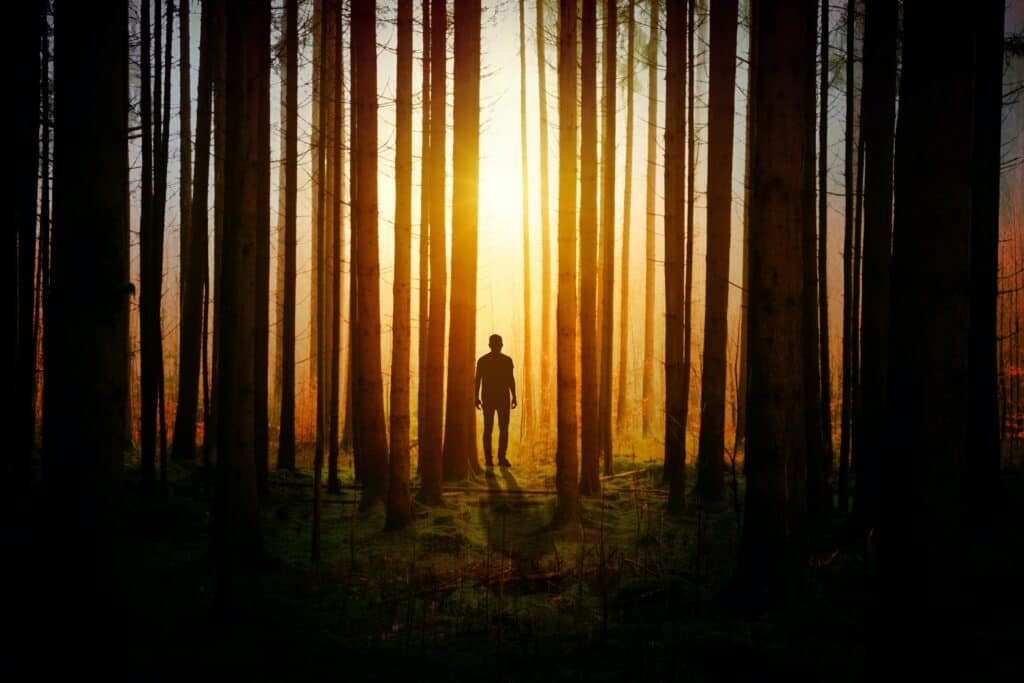
If I make it out that way, I’ll hit you up, and we can go because it’s an American treasure. There’s no way to describe it, but it’s not what people think. It’s extraordinary American music.
I like John Mayer. What’s the appeal of having a tiny house?
I had a 3000-square-foot French Tudor 100-year-old mini-mansion in upstate New York, 1000-plus books in my library, and just crates of stuff that I had been saving since high school. For what? I don’t know. It’s to accumulate some sense of identity. I hated upstate New York.
One of my mentors is Jay Samit from METal.
By the way, he was a guest on this podcast.
He’s one of my mentors and one of my heroes as well. He calls it Rochester-think when you invent the digital camera and then shoot yourself in the foot with it like Kodak. It’s like, “Oh, it will never be anything.”
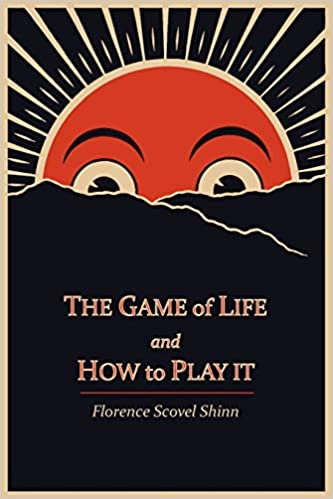
I raised my daughter to launch lots of Montessori through sixth grade and entrepreneurial thinking. She finally graduated high school, and I said, “I’m out of here.” So I dumped everything, sold what I could, gave away what I couldn’t, threw away the rest, packed up my truck, and headed west. I built a tiny home. It’s just minimalist. It’s just keeping things very, very succinct.
A good example is Steve Jobs always wearing black turtlenecks and Zuckerberg wearing gray hoodies. It’s just a cognitive load that you don’t have to carry.
It all takes up mental space. Now that I’m done raising my daughter, I’m empty nesting. I drove up the Rockies down the coast the last three years and landed in the bay, but I don’t have anything weighing me down, and I can just focus on my purpose and what I’m building for the world. That’s the appeal of a tiny house. It’s just less to manage.
And if you get tired of it and need to defrag that, I suppose it’s easier to burn.
It’s all wood. It’s like an art studio. It’s like a hot yoga studio on wheels. It’s all tongue and groove inside. It’s got a tiny little wood stove and maple hardwood floors. It just reminds me of my yoga studio from back in New York.
Let’s talk about Purpose Mapping. I understand the process firsthand from you walking me through it. I’m holding in my hand right now—for our listeners who can’t see it because they’re not watching the video—a purpose map for me. That process we went through is awesome, so I want our listener/viewer to understand what the process is like, what you get out of it, and how to embark on it themselves, with probably your help, I would imagine.
It’s almost impossible for me to explain to somebody the experience they’ll have. You end up with a one-page plan of where your purpose is and your reason why. Then your vision mission milestone brings that dynamo down to the level where you can execute it, but the process itself is a process of painting your shadow or blind spot into a corner.
“The cave you fear to enter holds the treasure that you seek.” – Joseph Campbell.
We look at your ways of being that feels best, your essence. Your strengths are the things you do that feel best and put you in flow. The things you do that feel worse are your downfall. Then, what that leaves are the ways of being that feel worse, the shadow. As Joseph Campbell would say, “The cave you fear to enter holds the treasure that you seek.”
I can’t remember the Latin phrase in alchemy, but it basically stands for, in filth, it is found. In those places, we don’t want to go, hide, repress, and deny where that sliver of divinity lives, that spark of creation that is our energy source. It lives in the last place we would ever want to look.
Supporting somebody to get there in a way that doesn’t trigger some trauma response or psychological reaction is a delicate process. Some of the men in METal have referred to me as a surgical precision empath and the ability to go in and pluck the gold out of the shadow. When we connect that to our strengths, that liberated energy, attention, and power fuel the development of our strengths and push us just 4% beyond our comfort zone. That’s what we know from fMRI brain scans puts us in flow.
When we’re leaning into our strengths—the things that put us in flow with that little bit of extra energy, attention, and power—we can click into a flow state which is how we realize our purpose. Some would call it our zone of genius. Whatever you want to call it, it’s that feeling of I’m fully alive. I have no questions about who I am or why I’m here. I’m having an experience of, “Yes, this is clearly why I was born.” It’s extraordinary. It’s remarkable.
We craft a life plan around that, a project or a mountain to climb over the next three to five years that requires us to ignite our purpose to achieve it. That structural tension holds us in a dopamine-producing framework that gets people out of lethargy, melancholy, and depression.
We craft a life plan in Purpose Mapping, a project or a mountain to climb over the next three to five years that requires us to ignite our purpose to achieve it.
I’ve worked with many people that are either at the top of their game or have sold businesses, and they’re like, “I want that spark back. I like that drive and that hunger.” We find that we have to create a bigger goal than they’ve ever imagined and get super precisely focused, and then all of a sudden, their brain starts working on how they’re going to achieve it.
I’m curious about your experience. How is that working for you since you got clarity?
My shadow is selfish, didactic, and arrogant.
Thank you for owning that publicly. That’s brave.
Yeah. So feel free to use that against me, all my enemies. The gold in that is generous, perceptive humility. If I can find it in myself to be humble and calibrate to people where they’re at that moment instead of trying to preach, teach, and coach them all the time—my wife especially dislikes that when I’m coaching her, and she didn’t ask for it—and if I’m generous to a fault instead of selfish, then that’s where I’m in this expansive state. It feels amazing.
If I don’t focus on that aspect of it, I’m not honest with myself and what my shadow is, and I’m just focusing on my strengths of being intuitive, strategic, and so forth, I miss the goal.
Read your purpose statement at the top with the three lines. I’d love to hear that again.
I intend to intuit benevolent connections by creating, coalescing, and transforming with generous, perceptive humility. That’s a mouthful, but the part that our listener will have already heard is that generous, perceptive humility was gold.
Intuiting benevolent connections is just a strength of mine, being connected to intuition, acting with benevolence, having that always in my mind like how do I reveal light at this moment, and making connections. I’m a super-connector. It’s just part of who I am. That’s not networking. It’s more like finding opportunities and, almost like a conductor of an orchestra, bringing them together at exactly the right moment. That’s just something that I’m gifted with.
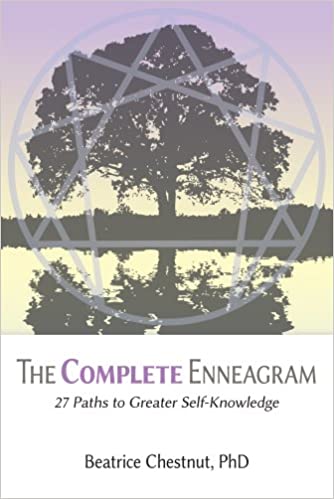
Then, creating, coalescing, and transforming—that’s the how—are more doing-type strengths of making the connections. The benevolence happens through creation and coalescing, integrating concepts, ideas, strategies, and tactics. All that together, and then transforming because it’s not information that makes people happy and fulfilled. It’s transformation.
It all makes a lot of sense to me and helps me to be clear on what’s on the path and what’s off-path.
And that clarity. We can’t hit a target we can’t see. When X marks the spot on the map, we know exactly where to dig and are much more efficient and effective. Because we have limited energy, we can only apply so much in a day. When we’re using it for our highest leveraged activities, much more happens quickly, and we get that dopamine, oxytocin, and serotonin we’re wired to seek.
It was a 25-year process. I was a philosophy major at UW-Madison, and that’s when I began figuring out what this is all about. Why are we here? What are we doing? How do we live a great life?
Back to the ancient Greeks, the Vedas, and all of this is what I studied. I’m trying to boil that all down and then bring it to the modern day with Brian Tracy, Tony Robbins, Covey, Kiyosaki, Michael Gerber, and all these guys. It’s the same stuff over and over.
When you boil all that down, burn all the notebooks, and have that one page, you’re left. So if that’s my plan and I can make decisions based on this, things go exponentially quickly.
I’ll check in with you a year from now or two years from now and see how your mission project is going.
I don’t know if you know this, but we have a UW-Madison in common. I have a master’s degree from there in biochemistry.
Such a beautiful campus.
I loved going to the terrace, sitting there, and enjoying the lake. If I knew how to swim, I would have joined the Hoofer. They had a sailing club.
Your strengths make you feel great and positively impact your flow. Share on XI never did that, either. Instead, we would walk out to the point and have bonfires on the weekends. I remember that being a lot of fun. Did you steal a cafeteria tray and then sled down Bascom Hill?
I hadn’t, and I won’t. It sounds like fun, though. It’s like cow tipping. I never did that, either.
I never got to do that. It seemed uncompassionate for the cows.
Somehow that didn’t resonate with me.
Let’s talk about your shadow. How did you discover what it was? Did you read Debbie Ford’s book?
Yup, Debbie Ford’s Shadow Work first came to light when I was 18.
No pun intended, right?
Yeah, exactly. I was 18. I went to Rochester for school. I had a messy breakup in high school and saw a therapist who just told me about the ManKind Project. Are you familiar?
No.
It’s one of the oldest and longest-standing men’s work organizations. For listeners, they can go to mkp.org. 50,000-80,000 men worldwide have been initiated this weekend.
You get a men’s group, and you have men’s circles that can last years or decades, which is profound. Much of it comes from the work of men like Robert Bly, a poet, Michael Meade, and James Hollis. There are a bunch of quasi-union poets and therapists there who are authors that merged into the men’s movement.
We did sweat lodges, and there was a lot of psychodynamic work where we were bringing out some of this head trash, replaying it, and giving it a different ending where we were the ones that succeeded.
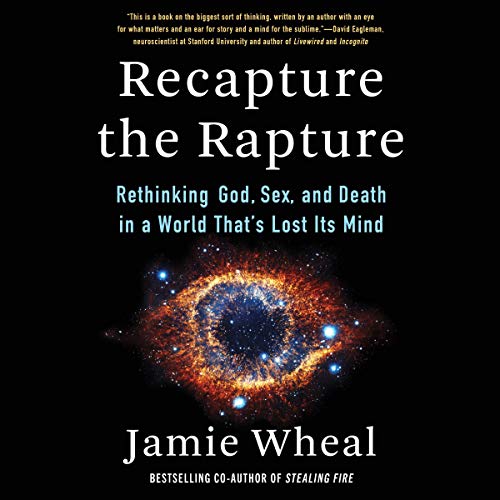
There’s a lot of childhood trauma-type stuff where we couldn’t defend ourselves or overpower what was overwhelming us, so as adults, we could replay that with props and things and rewire the story. So you witness that, integrate it with these weekly men’s circles, and then learn additional tools.
It’s just a profound experience, especially at 18. It was probably a little over my head, but the men’s circle gave me a sense of what was possible for my life. That was amazing. That’s where I learned about shadow work based on Carl Jung.
We’ll get to mine personally in just a second, but I want to give the listeners a little sense of where this comes from. Freud was a 19th-century materialist. He started getting into the unconscious and determined that there were a lot of hidden, repressed, and denied aspects of self, memories, and just all the creepy crawlers. He said it’s all the shadow from childhood, repressed urges to hit our brother over the head and take his candy, and things we couldn’t do.
Jung was his protégé for a long time. Eventually, they separated, and Jung said, “Yeah, all that stuff’s in there. This incredible wellspring of creativity, resourcefulness, and power is also in there.” Jung spent his life working on excavating that and helping to bring that to light. That’s where all of this comes from.
Then, Joseph Campbell, who was more modern-day, helped with the first three Star Wars movies, which is why they’re so profound. But you think of the hero’s journey. He wrote The Hero with a Thousand Faces. It’s just the story of this archetypal psychodrama that plays out repeatedly.
You think of The Matrix, Star Wars, and Harry Potter. There’s a hero that is out of place. Luke Skywalker is living in a hole in the sand, Neo is a computer programmer who has no idea what’s going on in his world, and Harry Potter lives in a closet under the stairs, and all of a sudden, they go on this magical ride that takes them way out of the world that they were in, they discover powers and helpers, and they face dragons.
Lord of the Rings is another great example, or even The Wizard of Oz, the Wicked Witch of the West, and all this. They overcome it and must integrate that and bring that elixir of life back to their people. That’s how they renew humanity.
If listeners are familiar with him, Jordan Peterson is like our modern Joseph Campbell. Not all of his stuff, but a lot of his earlier stuff and some of his Harvard lectures—you can still find those on YouTube—are brilliant with this thing.
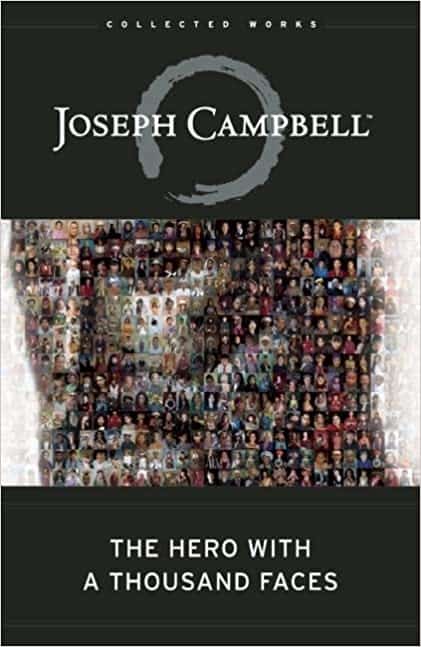
I just got sold on it that there’s something I don’t see about myself. It’s hampering me. I don’t have all of my power online. I just worked with that for decades with coaching, training, therapy, workshops, and all these sorts of things and ultimately got to the point where I could see through all these personality profiles.
They all kept saying, “Look, here’s what you’re great at, here’s what’s amazing about you, and these are the things that, if you do, will take you out of your flow state. Here is the way of being that is what you’re hiding, repressing, and denying.”
When I saw that over and over or when we did your process, you just got a sliver of the larger arc of Purpose Mapping, where we used a mastermind to help you come up with the keywords that go in each of these sections of your map, but usually, what I’ll do are half a dozen personality profiles and an anonymous 360 and distill all that down into that one-pager. There’s a lot less guessing and feeling around inside. There’s much more corroboration from objective resources that keep pointing at the same things.
By the way, that was such an amazing process that I experienced. You facilitated six or seven other METal brothers who were contributing to the chat and just speaking into the Zoom call what the distillation they were hearing from my explanations around things that triggered me, something that I was passionate about, et cetera.
That was cool. Some people I’d never heard speak before, they’d never heard me speak. Some people there also were friends of mine from METal, and I got so much value out of that. I’ve never experienced anything like that. All my personality profiles have been just me filling out a form.
This unlocks the potential of reading about yourself and all these different personality profiles. But when you stack them all in a scatterplot, you start to see a throughline. They’re all pointing you in the same direction. I use personality profiles from different cultures and different periods. It’s uncanny how they can all point you in the same direction.
Awakening is a one-way street.
One of the things I like to say is awakening is a one-way street, and everybody that I’ve worked with—I’m not saying everybody on the planet because I don’t know everybody—I have a hunch that almost every human is heading the wrong way down a one-way street. To turn ourselves around and say, “Oh, all of these things that I thought were natural for me are just habituated conditioning, and I have to turn around to do the hard thing, that 4% beyond my comfort zone, and keep leaning in is where I come fully alive.”
It’s not as intuitive because we’ve been trained to do more socially acceptable things than our family, school, religion, or whatever wanted from us. It whitewashed the patterns in the natural expression that we would have if we were raised, as Maria Montessori would say. If we follow the child, we will see their natural potential and patterns emerge.
I went to Catholic school, and I had eight years of sitting in my seat, raising my hand, don’t say that, and don’t do that. All of that natural expression just gets repressed.
Did you ever get your knuckles rapped with a ruler?
Verbally. It gives me a lot of compassion for my mother. I don’t know what happened to her. She will never tell me. It wasn’t anything hugely egregious, but rapping knuckles or that type of thing was acceptable for the time. I got the trickle-down of it, and it wasn’t that bad.
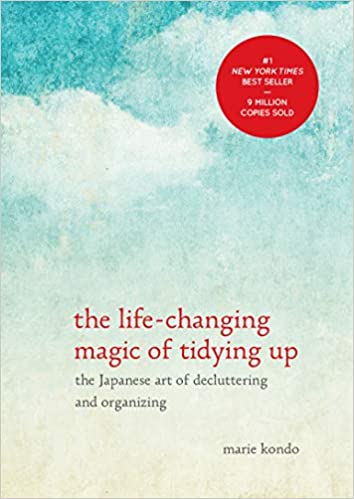
But we do that for our kids. We try to filter and titrate the traumas we experienced, and then they find their traumas somehow, but it just gives us more compassion when we realize that everybody has a shadow. Everybody has a downfall. I won’t use it against you because you can use mine against me. What I’d rather do is bare my soul and say, “Hey, how can we work together? How can we form a superorganism, a mastermind, and a spirit of harmony?”
Going back to the Napoleon Hill stuff, I still listen to that. I’m getting better at what he means by a team working with a clear major purpose in a spirit of harmony. What I do now with teams is everybody in their zone of genius, or we don’t do that project. We park it until somebody ignites the full potential to do that with our team. We pick something else where we can all be in our zone of genius together, and it’s extraordinary what happens.
I don’t want to shirk my invitation to share my shadow. We were right there, and I don’t want to let that slink by because it will. The shadow is very slippery. My shadow is a manipulative, narcissist addict. My goal that comes out of that is mountains of innocent possibility. When I connect that with my strengths of creating, illuminating, and gamifying, I aim to draw light by creating illuminating games with mountains of innocent possibility.
How have you done that today, for example, besides doing that in this podcast interview?
I haven’t done that today. This is the first thing that I’ve done today for work. So most of my day was just, “Well, is that true?”
I was up in Reno last night. Now, I’m down in Tiburon. I had a drive. It’s 7 AM. I work with my Chief Technology Officer (CTO) twice weekly, and we create the software we use to create your map. We’re working on bringing that to millions or hundreds of millions. We’re working on purpose.ai.
If that intrigues your listeners, they can go to purpose.ai/optimized and apply to be beta testers for purpose.ai. They can access very similar content to what I took you through. I hosted you and brought you through it, but they can get access to videos and things that will take them through it as well. They can create a one-page map and print it like you did. That’s cool. That’s the larger arc.
The Purpose Mapping process is a mountain of innocent possibilities.
My mission is to create purpose.ai. Eventually, it’ll be in the metaverse, augmented reality glasses, and all this fun stuff, but right now, we’re trying to get some of my coaching into an algorithm to reach many more people with it. That would be one example of how I want to draw forth light from millions of people by creating illuminating games—the Purpose Mapping process—with mountains of innocent possibilities. Man, this would be so cool.
In men’s work or yoga, it’s just holding that pose. Yes, it’s hard. Yes, it’s challenging, but lean in 4% more. If I do that consistently, we see an exponential curve in any successful business. It’ll just hit this hockey stick. That can be maintained if we build the right structures and team around it and everybody’s aligned. That’s how I’m doing it in general in my life these days. I worked with my CTO this morning and am now talking with you.
That certainly counts as working towards your purpose. That’s awesome. It’s not dissimilar from what I think of as I go about how I will reveal light now. You’re drawing forth light, and I’m showing light. It sounds similar.
It could be going outside in the backyard and feeding the ducks and the geese because we were on a lake. It could be conversing with my wife, little son, or mother-in-law. It could be talking to a friend, colleague, or client. If I have that intention, I will get a better, more profound outcome out of the interaction than if I show up with a powerful intention. You will have a more powerful outcome at your family reunion than if you just showed up.
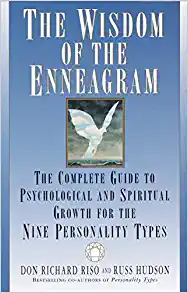
That’s right. It’s dopamine, oxytocin, and serotonin. What are we after? Our goals are just clickable desktop icons for something that runs in a process that is deeply unconscious for us that produces these feel-good neurochemicals. That’s ultimately what we’re after, showing up with your wife, having a conversation where you’re more grounded and centered, and attempting to reveal the light. You can have an epiphany, share an epiphany, and get that endorphin umbrella and dopamine glow. It’s just wonderful.
I like to simplify it. So many go for all this stuff and all these things, but we’re after dopamine, and there’s a specific way to create it. It’s to have a clear intention, lean in, and do the challenging thing. That will produce dopamine.
People get a dopamine addiction from scrolling on their phones and wasting time on social media, Netflix, and other streaming services that the serotonin and oxytocin part of is missing. It’s just the dopamine novelty factor and not the meaningful connections and feeling of fulfilling purpose. That part’s missing. Our listeners must understand that it’s not just about dopamine.
Right. Oxytocin is love. It’s what we call love. Serotonin is just feeling alright in our bodies and the world and feeling like we belong, are part of something, and are okay.
Every quarter without fail, I go as far out into the woods as I can get up in the Sierras, the desert and middle of nowhere in Nevada, or wherever I’m going. I take a tarp, mat, bag, and bottle of water and nothing else. I go out and lay in the stars for three nights. I detox and let my brain relax and reset. That’s another way I defrag.
I do them on the solstices and equinoxes. I was a week late, and I could feel it. I was getting cagey. It’s like my brain needs that cyclical reset. So for anybody listening, I highly encourage it.
I was talking to a client who’s got more money than God. I just told him I did this. He’s like, “I think I would be bored. “That’s exactly the goal. Get as bored as you can get and let your brain reset itself. It’s incredibly healthy because we’re completely addicted to our phones, and it’s toxic.
Kids—especially through the pandemic, where they’re just glued to their phones—are so awkward. They don’t know how to create that type of oxytocin bond. That’s a little concerning for society.
I finally deleted Facebook from my phone for the 5th or 10th time. I’m sticking to it this time, so no more wasting time. I’m not wasting time if I’m standing in line at the grocery store waiting for my turn at the checkout. I don’t need to maximize that moment by email or social media. I can just be there, smile at people, and patiently wait.
Get some oxytocin going up. Just have a conversation like a normal human being. That’s the real concern. We’re old enough that we didn’t have cell phones while growing up, but these kids—especially through the pandemic where they’re just glued to their phones—are so awkward. They don’t know how to create that type of oxytocin bond. That’s a little concerning for society.
We’re in a world now where you have to get permission to call somebody by texting them first. Otherwise, it’s bad etiquette. It’s a strange, strange world. I see people sitting next to each other and on their phones, both of them. They could be conversing, but they’re facing their phones instead of each other. It’s not healthy.
You get numb to the opportunities to reveal light by simply saying hello. You could be standing in line on your phone, scrolling through Instagram, or standing in line saying hello to each of the people next to you on either side.
I experienced it last night. I’m at the concert, and I’m up near the front. I probably had 30 or 45 minutes before the band, so I chit-chatted with people around me. I don’t know these people, but we have something in common. We have a passion for this music. Many of us have a decades-long history of seeing that band at different places and wherever, but what I found repeatedly was that I would start like, I don’t vibe with this person. If I gave it five or ten minutes, we eventually found a groove, and we’re like best friends. We’re laughing, and we’re relating.
In the flow cycle, resistance releases into the flow state, which is 4% beyond our comfort zone. I try to leave my phone in the truck when I go into the grocery store to give myself a shot at maybe having a connection with a human being because I’m not going to be tempted just to grab it and start scrolling for the three minutes while I’m standing in line.
In the flow cycle, resistance releases into the flow state, which is 4% beyond our comfort zone.
There’s an opportunity to connect with people there. It’s setting up for success. That’s the neuroscience beyond our comfort zone in the direction of something we know has a payoff for us.
If I were to go swimming out into the middle of San Francisco Bay, 4% beyond my comfort zone, we’d swiftly turn into the danger zone. It’s not always just any activity but activities that we enjoy. There’s a resistance period. We have to push through that, and then in the release, the dopamine starts flowing, and all the rest of the neurochemicals cascade from there.
Good stuff. I want to unpack this and juxtapose that against the shadow. The word you used was ‘downfall. ‘ What’s the difference between downfall and shadow? Why is this difference significant to our listeners?
I’m not the first person to identify this, but there’s a being and a doing side to our human experience. There are ways of being that feel better, ways of being that feel worse, and things we do that feel worse.
The ways of being to feel better are our essence. Things we do that feel better are our strengths. The things we do that feel worse are our downfall. And the way of being that feels worse is our shadow.
There’s a being and a doing side to our human experience. The ways of being to feel better are our essence. Things we do that feel better are our strengths.
There’s an emotional content to each of these. The way of being that feels best, emotional content is joy or bliss. It’s like, “Oh, yeah, this is the real me. This is the guy I want to be all the time.” The emotional content of our strengths is actually fear. It’s that resistance that we have to lean into that releases a flow. It doesn’t start with dopamine. It begins with adrenaline. That’s what brings us fully present in our bodies. Then, dopamine starts flowing endorphins, anandamide, serotonin, and oxytocin.
When we get down to the downfall, the things we do that feel worse, the emotional content there is anger, anxiety, depression, dissociation, and ultimately, guilt. Then, the emotional content of the way of being that feels worse, our shadow, is a shame.
The difference between shame and guilt is I’ve done something bad, and shame is I’m bad. As parents, we don’t say, “Good boy,” we say, “Good job. Good effort. I like the hustle. I like the way you lean into that.” It’s nothing about the beingness. It’s just about the effort and the behavior. That’s what creates a growth mindset versus a fixed mindset.
The difference between shadow and downfall is being versus doing that feels worse.
That’s great. Did you learn this from the book The Downfall Versus a Shadow?
The emotional content piece, I think I got that from Brené Brown. I liked how she summarized it, so I’ve synthesized everything. My creation is the model itself, the being doing better and worse, that map of psychological wholeness where we get the gold out and connect it to our strengths. Everything else is synthesized and cobbled together. Vision, mission, milestone, that’s not me. That’s everybody. That’s just basic business and strategic and project planning. But getting the purpose statement is my creation. I think I got the distinction between the emotional content of shadow and downfall from Brené Brown.
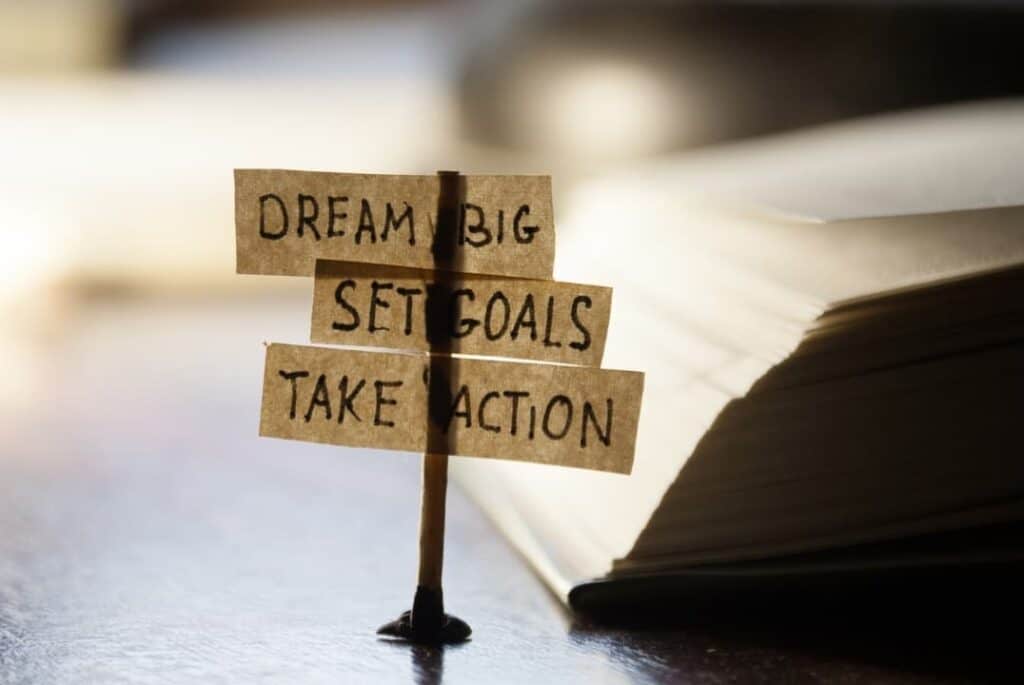
You mentioned earlier that you’ve read 1000 books. Did you speed-read them? Did you take some courses on how to speed-read so that you get through that many books?
Some of them I’ve read multiple times. A lot of them were on audio. Remember Zig Ziglar from Automobile University? He used to talk about that. When driving in your car, the radio is not improving you. I’ve been in sales most of my career because what will you do with a philosophy degree? Study people, motivation, and things like that.
I got into Zig, Brian Tracy, and all these guys, and I would walk out of the library every two weeks with a stack of programs on cassette, six cassettes in a shell. I’d have them up to my chin, and I’d be walking out. A lot of them were on audio.
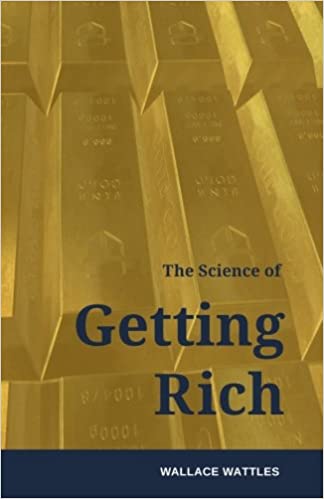
I did study something called PhotoReading, which is fascinating, but I’m not a good speed reader. I read very slowly. I could spend an hour reading a page and deeply considering it.
I don’t know that I’ve read cover to cover every single one of those books, but in PhotoReading, you go through and snapshot. It’s like a scanner getting it into the deep subconscious. Then, I would have them on my shelves, and I could just walk up to a book, open it, and bam, there was the paragraph or the couple of pages I needed.
I extracted in the 80/20 the highest value stuff because, most particularly, business books and a lot of books are mostly chaff, but I would go, where’s the real nourishment in this, and get right to it.
Which books out of those 1000 were the most pivotal? Which would be the ones that our listeners should check out most?
I just gave a presentation for Diamandis‘ book Flow on Ken Wilber’s Theory of Everything. Theory of Everything is absolutely required reading for anybody who remotely considers himself in the personal growth game. It will rehang your consciousness.
It’s like Marie Kondo’s The Life-Changing Magic of Tidying Up. Take all your drawers and dump everything on the floor. You touch everything, and you resort to it. That’s what the Theory of Everything does for your head. You take everything you think you know and dump it out, and then it magically rehangs your consciousness.
Everything that I do is built on that framework. I was a founding member of The Integral Center in Boulder about 10–12 years ago. I’m a big believer in lots of applied practices of integral theory.
The difference between shame and guilt is, “I’ve done something bad,” and shame is, “I’m bad.”
In other books, particularly the union side of things and around shadow, I love a book by Robert A. Johnson. Everything by him is extraordinary. He was Carl Jung’s youngest student. He lived in San Diego until well into his 90s. I think he only died in the last five to ten years.
He produced a lot of very modern interpretations of myths from the 1200s and 1300s where he showed that switch into a modern society where we had water wheels, the devil’s bargain, and trying to get more than the world provides and what that does to our psyche and our feminine feeling function.
There’s a book called Owning Your Own Shadow by Robert A. Johnson. They’re all 100-page books. They’re so succinct and so extraordinary. I recommend using them in hardcover because these are books for your great-great-grandchildren. That’s how profound they are.
There’s one that I gave to a friend of mine. He’s in his 60s, and he’s a contractor. He’s reroofing his house up in the Sierras where I was visiting my tiny house, fell off the roof, and broke his pelvis. He said, “This is the best thing that’s ever happened to me. People come every day out of the woodwork in my house, just sitting with me and bringing me food. We’re connecting in a way that I’ve never experienced.” He’s getting the gold out of the shadow.
I brought him a book that was in my tiny house.
How many books can you have in a tiny house?
I took my 1000 books and kept 200, but I only brought about 40 or 50 of them with me when I left New York. There’s a big duffel bag full of books still with a friend of mine and all those journals I mentioned earlier.

It’s called The Wisdom of the Enneagram. Check it out. It’s one of the most profound typological profiles because it’ll show your shadow in contrast to going the wrong way down a one-way street. This is the book that will turn you right around. I reread my type two days ago, and I’m back on track, chiropractic adjustment of the soul. I gave that to him, but I also highly recommend that book.
Another great Enneagram book—my favorite of Beth Kuper, whom I interviewed about the Enneagram not long ago on the show—is called The Complete Enneagram. Are you familiar with that book?
I’m not. Is it by Beth Kuper? I’ll look it up.
No. It’s by Beatrice Chestnut.
I have another one of her books that I recommend in my course for business teams. She’s a brilliant writer on the topic, so I imagine that book is also extraordinary.
You’re a fan of the Enneagram. I was going to ask you about this. Personality profiles, besides, of course, doing Purpose Mapping, what are your favorites? It sounds like Enneagram is one of them.
If I’m working with a business team, we’ll do Wealth Dynamics, which shows you how you’re designed to make the biggest contribution to get you paid.
Enneagram is the last one I do with people so often. If I’m working with a business team, we’ll do Wealth Dynamics, which shows you how you’re designed to make the biggest contribution that’ll get you paid, and Kolbe, which tells you how you get into action and how you pop the clutch, and Myers-Briggs which is the one I use comes from Personality Hacker. They’re brilliant and did a course with Beatrice Chestnut because they are more Myers-Briggs-oriented.
Their podcast is extraordinary as well for anybody that’s into Myers-Briggs, but they have a unique model that they use that shows the four cognitive functions, the primary, auxiliary, tertiary, and inferior cognitive functions, in a stack versus you’re this type. Most people have it wrong. Once you see it in those four cognitive functions, it clicks and makes a lot more sense.
Then, I use the Enneagram. For people that want to take a deep dive or use some of the more birthday-based stuff like facets of astrology that I have found very consistently blow people’s minds with how much they feel seen and understood, there’s something called My Human Design which is also an integrated system, which is if you have the right birth time, profound. It sums up everything else.
Then, we do a 360 because we all have cognitive biases and blind spots, so we will miss things even as we’re reading our typologies. I ask for people in their lives to reflect anonymously so they can be honest, and then when we distill all that down, we get the keywords that will repeatedly show up and end up in their essence, strengths, downfall, and shadow quadrants.
Are you familiar with PRINT? That is an amazing personality profiling system. It’s a favorite of Dan Sullivan, the founder of Strategic Coach. He’s a big fan of Kolbe. PRINT is all about unconscious motivators and the triggers that get us into our shadow self. It is amazing. You will resonate with that.
Also, Debra Levine, the co-creator of PRINT, was a guest on this podcast.
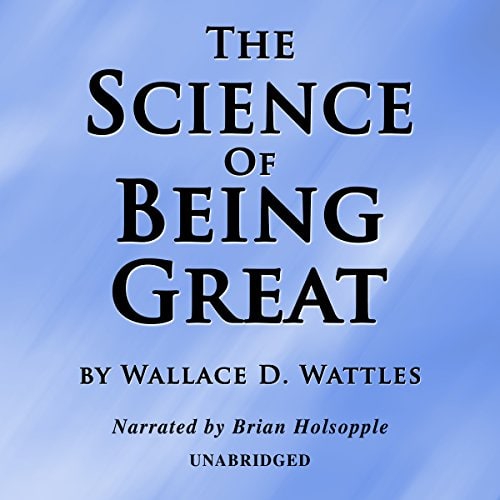
I want to check that out. That sounds great. That’s right up my alley.
For somebody who’s more materialistic—not that they’re probably still listening because they’ve probably been turned off by my show a long time before this—and don’t buy this idea of birth time having anything to do with anything other than it just happened to be the time that you popped out, how do the birth time, birth date, and birth location have anything to do with who you are, what you’re meant to do in this lifetime, and what challenges you’re going to face?
I have two answers to that. One is Carl Jung’s answer: astrology is all the wisdom of the ancient universal wisdom because there’s Vedic Astrology from the Hindu culture, there’s Chinese astrology, and then there’s Western astrology. There are all sorts of different micro variations within all that.
He would say, just like the grapes have a certain vintage, they got a certain amount of rain, a certain amount of sun, a certain heat profile, and there’s just a way that they’re going to reflect that in the flavor of the wine. That’s how Carl Jung would answer that question.
My answer is I don’t care. It’s just trusting the process. By the time you get your one-pager, you’re not going to remember what words came from where, but if all of these systems are all saying the same thing about you, it’s just a deeper, richer corroboration of that throughline that starts to emerge from the scatterplots as you start to overlay the insights from each of these different personality profiles.
As you said, Kolbe is how you get into action. Each of these things looks at us from different angles and facets. Astrology adds much texture and color to the structure that the more modern scientific personality types will show us. It doesn’t matter what anybody thinks about it.
My best friend in college is a world-class musician. He’s traveled the world as a band now, but he’s played in symphonies and all these sorts of things and became a semi-professional astrologer. He’s like all Scorpios.
When we develop our strengths based on our liberated energy, attention, and power, we’re pushed beyond our comfort zones. Share on XWe’re driving around Kansas City. This must have been almost 20 years ago. He’s explaining to me. We met in quantum physics class in college and then played many Grateful Dead tunes on the street. He played violin, I played guitar, and all that sort of thing.
From an astronomical standpoint, he explained astrology to me, the science side of what’s happening in the sky with the retrograde and all these things. We drove around Kansas City for two hours. We’re smoking a joint. He finally pulls over, parks the car, and says, “Anyway, dude, astrology is bullshit.”
It’s like Math. It’s internally consistent, but once you pop out of it, you can look at it and be like, well, it’s self-referential, and it proves itself, but you can’t prove it objectively. You have to let it be what it is. But when we stack it with all of these other personality profiles, you start to see that it’s getting me right, adding a little bit of texture and color. It becomes a welcome addition to the suite.
My understanding of astrology and numerology is that nothing is random. In this illusory reality, nothing’s random. The time, place, and circumstances of your birth and the fact that you, for example, were adopted at birth is all destiny. It’s all predetermined and part of what is already written. It’s already written and serves as a map of hidden secrets about your destiny and nature that you’re dropped into in this lifetime. That’s my understanding of it.
America is a nation of mystics. We don’t have to go back to 5000 years ago in India or China to find profound mystical truths and revelations. It’s right here in our language, culture, and modern times.
I learned something from Jamie Wheal, who wrote Recapture the Rapture and Stealing Fire. He’s an old colleague of mine from the Ken Wilber integral early days. One of the things that I like about what he says is sometimes, he lets the mystery be the mystery. Only so many explanations will satisfy us; eventually, we surrender to something and go from intellect to intuition.
I know that that’s important for you. You’re an incredibly brilliant intellectual mind. But it runs out of utility at a certain point, and we stretch into something more. That’s where the intuition and the mystery become more palpable. So at that point, it’s like, okay, however, this got here, and whatever this is saying about me, there’s something synchronistic and relevant in how it lives in me and how I can utilize it to reveal life.
I only just last year learned that synchronicity is a term coined by Carl Jung. I did not know that. I think I sound the smartest and give the most value when I don’t worry about my intellect and act like an FM receiver, a dumb terminal, and whatever I’m connected to. The universal Google, the fabric of creation, the collective consciousness, or collective unconscious, as Carl Jung would call it, is at my disposal. I can make a query with my dumb terminal and sound smart by sharing something of high value that is not even mine. I tune into it on the unified field.
It’s not even that woo-woo. This is all in Napoleon Hill stuff. Napoleon Hill distilled down what made Carnegie, Edison, Firestone, and all of these captains of industry super successful. That’s what they were doing. We’ve lost that somehow, but it’s all written down. It’s all the literature.
America is a nation of mystics. We don’t have to go back to 5000 years ago in India or China to find profound mystical truths and revelations. It’s right here in our language, culture, and modern times that we can relate to. It’s profound.
In addition to Napoleon Hill, I also recommend Florence Scovel Shinn.
Okay. I haven’t heard of her.
She’s amazing. She lived around the same time as Napoleon Hill. My favorite book of hers—the only one I’ve fully read now—is called The Game of Life and How to Play It, published in 1925.

I had that in my library.
It’s an amazing book. She’s like Neo in The Matrix. This was 100 years ago. It’s mind-blowing to think about.
Did you ever get into Wallace Wattles?
No. But I’ve heard of him.
There’s a trilogy. It’s The Science of Getting Rich, The Science of Being Great, and a third about health. You can get all three in hardcover books. Again, it’s mind-blowing how he knows this stuff and how come this isn’t just in schools across the country because this is what would make America truly great again. So dig it up, dust it off, and dive in.
I still listen to that stuff. The Science of Getting Rich is probably only 2 ½ hours on Audible and free on Audible. So just that one book I probably listen to three, four, or five times a year still. It’s the fundamentals.
That’s so cool. I still listen to Brian Tracy’s DVDs from decades ago. It’s so good.
It’s the fundamentals. You can’t go wrong.
Awesome. If our listener wants to identify their purpose, shadow, and the gold in that shadow and go through your amazing process, where do they go, and how would they work with you?
Go to purpose.ai/optimize. There’s a little application. Everybody that applies gets access, but we’re looking for our ideal beta testers to be in more conversation with over time. So that’s how to get access to it. They’ll get the same course you went through, the micro-course version with videos.
There’s a way to get a hold of me through there if they want to book a call, meet with me, and get my support to develop that one-page plan as I did with you
We can't hit a target we can't see. We need to mark the spot on our purpose map to know exactly where to dig to become more efficient and effective. Share on XMy old website from before my Sabbatical when I was living in New York is still up. It’s at purposemapping.com. They’re also welcome to book a call there but check out purpose.ai. We’re very excited about where that’s going, and we’re looking for people who are likewise enthused and want to experience it, give feedback, and participate in helping to reach millions of people with this.
Awesome. Thank you, Craig. This is amazing. What you created is amazing. I’m just floored with the process that you took me through and the insights I gleaned with your help, so thank you for that. Thank you for doing that for so many others.
I’m pleasured. It’s my zone of genius, which lights me up, and I love it. Thank you for having me today and trusting me to go through that process.
All right. Thank you, listener. Thank you for being open to these sorts of conversations. Get out there, make it a great week, and reveal some light. We’ll catch you in the next episode. I’m your host, Stephan Spencer, signing off.
Important Links
Connect with Craig Filek
Apps/Tools
Books
Businesses/Organizations
People
Previous Get Yourself Optimized Episodes
YouTube Videos

